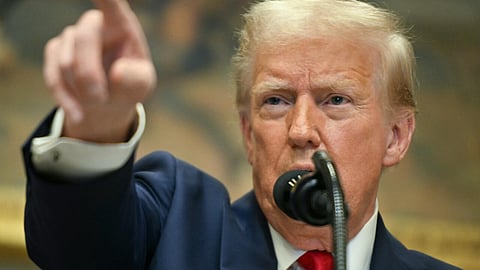
- NEWS
- the EDIT
- COMMENTARY
- BUSINESS
- LIFE
- SHOW
- ACTION
- GLOBAL GOALS
- SNAPS
- DYARYO TIRADA
- MORE

WASHINGTON (AFP) — For years, as disputes over names on the map riled up nationalist passions in several parts of the world, American policymakers have watched warily, trying to stay out or to quietly encourage peace.
Suddenly, the United States (US) has gone from a reluctant arbiter to a nomenclature belligerent, as President Donald Trump declared that the Gulf of Mexico will henceforth be called the "Gulf of America."
In an executive order signed hours after he returned to the White House, Trump called the water body an "indelible part of America" critical to US oil production and fishing and "a favorite destination for American tourism and recreation activities."
The term Gulf of America was soon used by the US Coast Guard in a press release on enforcing Trump's new crackdown on migrants, as well as Florida's Republican governor, Ron DeSantis, when discussing a winter storm.
Deep-sea ecologist Andrew Thaler said Trump's declaration was "very silly" and would likely be ignored by maritime professionals.
A president has the authority to rename sites within the US — as Trump also did.
"The Gulf of Mexico, however, is a body of water that borders several countries and includes pockets of high seas," Thaler, founder of Blackbeard Biologic Science and Environmental Advisors, said.
"There really isn't any precedent for a US president renaming international geologic and oceanographic features. Any attempt to rename the entire Gulf of Mexico would be entirely symbolic," he said.
Mexican President Claudia Sheinbaum has cheekily suggested calling the United States "Mexican America," pointing to a map from well before Washington seized one-third of her country in 1848.
"For us it is still the Gulf of Mexico and for the entire world it is still the Gulf of Mexico," she said Tuesday.
